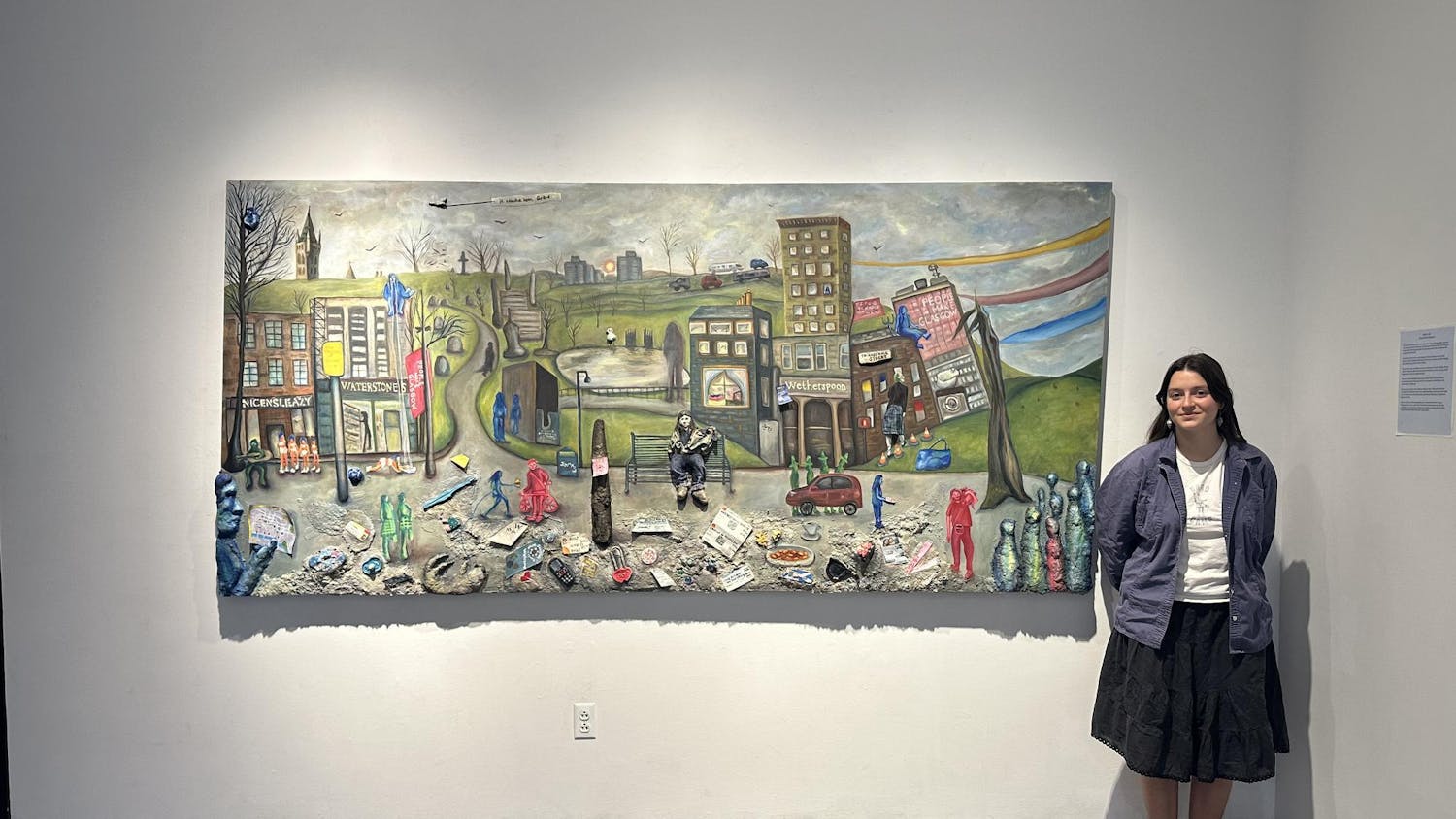The best theater forces us not just to confront life's ugliness, but to empathize with it. "Trigger Hand," running at Production Workshop as part of the "Writing is Live" festival Feb. 10-13, does both. By using the politically charged setting of a supervised injection facility in Vancouver, the play examines questions of addiction in the context of the relationships it insidiously poisons and strangely manifests.
"Addiction needs to be seen as a family issue and a community issue, not the individual's problem," said playwright Samuel Barasch '12 of the play's theme.
The action of the play revolves around doctor George Pull (Gordon Sayre '12) and his work at the supervised drug injection site, which provides a safe place for addicts to use and get help. In the course of his work at the site, his life intersects with those of his staff, his patients and their drug dealer.
The direction of "Trigger Hand" immediately forces the audience members into this world by having them enter around the stage under scaffolding into the supervised injection facility. The set, never a static place or time, juxtaposes a junkie's grungy room with a sad, whitewashed hospital facility. In typical PW fashion, platforms add dimension to the space and movement.
Director Leandro Zaneti '12 said the mix of reality and dream in the play is meant to trigger a sense of remembrance in people.
Like the faded fragments of memory presented to the audience, the shifts in action of the play — sometimes designated by actor movement or role changes — are sometimes barely detectable as they occur. It takes a few moments of uncomfortable uncertainty to realize that instead of Pull being held up by Transportation Security Administration agents, we are now witnessing drug addict Baby's side-effects, which includes vomiting physically represented by the violent rattling of the fences that surround the stage.
"Trigger Hand" painfully immerses the audience in its world. The technical manifestations of the characters' physical and emotional states are especially potent. When Pull is talking fellow traveller Hush (Elexis Williams '13)down from a panic attack on a plane from behind a large clear curtain, the added dimension of obscurity further shoves us into Hush's impaired consciousness.
"I read the script and it terrified me, and at that moment I really wanted to work on it," Zaneti said, adding that working on an original play is both difficult and freeing. He said having Barasch as a "sounding board" for his ideas was very helpful.
Audience members see many of the characters at their lowest points, yet their struggles to push forward resonate. The complex characters are both the heroes and villains of their own lives. HIV-positive and pregnant Baby, deftly portrayed by Alli Schaaff '14, both repulses the audience with her self-destructive tendencies and garners sympathy as the victim of her addictions. What makes Pull — who might otherwise seem flat — dynamic is the contrast between his counseling of his patients and his inability to overcome his own failings.
The most enigmatic character of the play, blind drug lord Hush, serves as both a foil to Pull, whom she calls a "bougie liberal activist," and a reflection of his inadequacies. Hush, self-described as "brutal," slowly develops into a surprisingly well-rounded character as we see her longing to "sell-in."
Through the characters' trials, the audience comes to see the addicts as more than their aberrations. Nurse Katie, portrayed in a standout performance by Ava Langford '14, says her job is not to make the addicts feel "worthwhile" but to make them feel "beautiful" and humane.
"The play has got this theme of starting clean and cleaning up," Barasch said. "If there's any argument that the play makes it is that starting clean doesn't exist and that idea is just driving people crazy."
Baby reflects this idea when she says, "There's no starting clean. But maybe I can try to make peace."
In an almost Dickensian fashion, Barasch's impressive debut takes a bevy of characters and brings them together into an overarching theme of not just the "wars" of addiction, but also how we treat the casualties. "Trigger Hand" questions the responsibility of a community in an age where we are quick to villainize those who most need our support.




